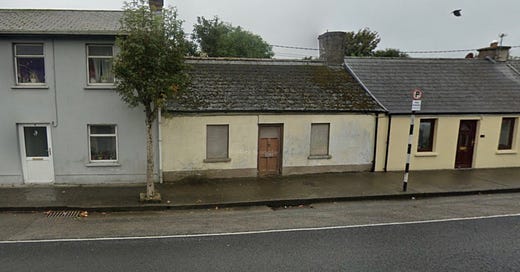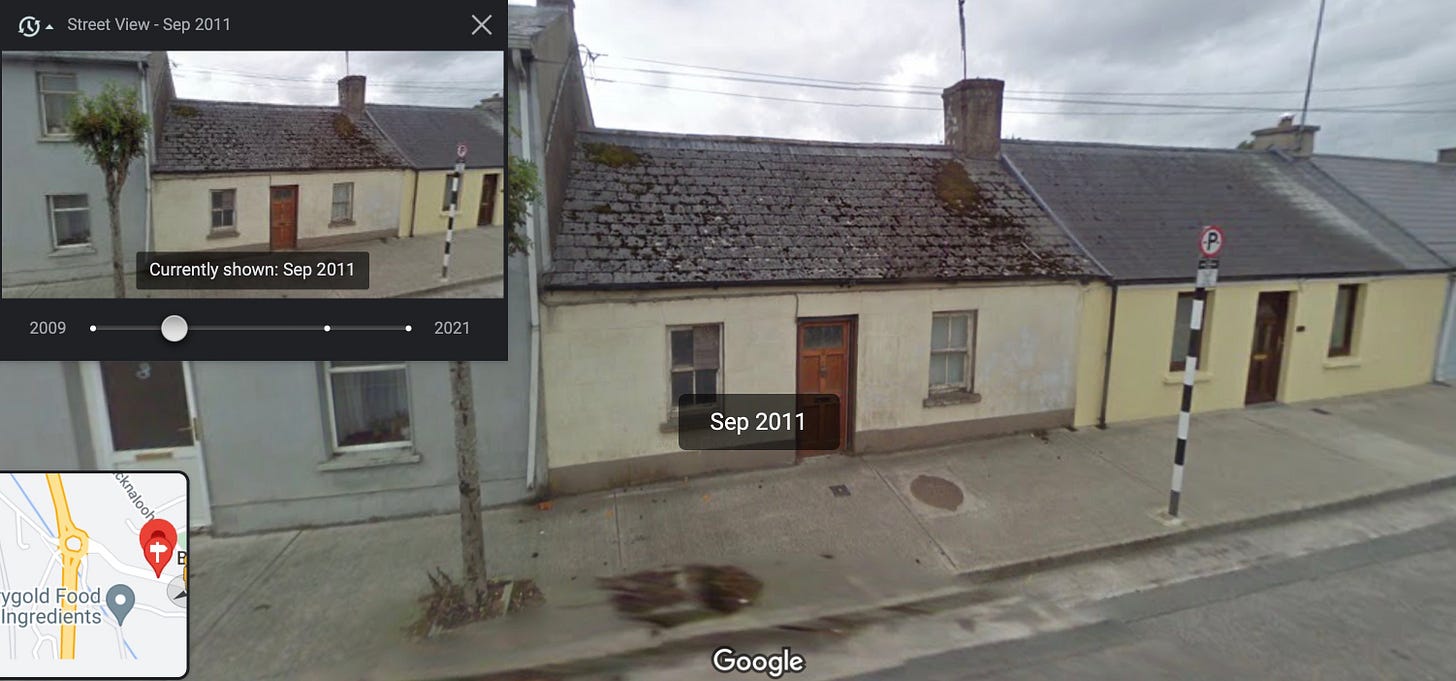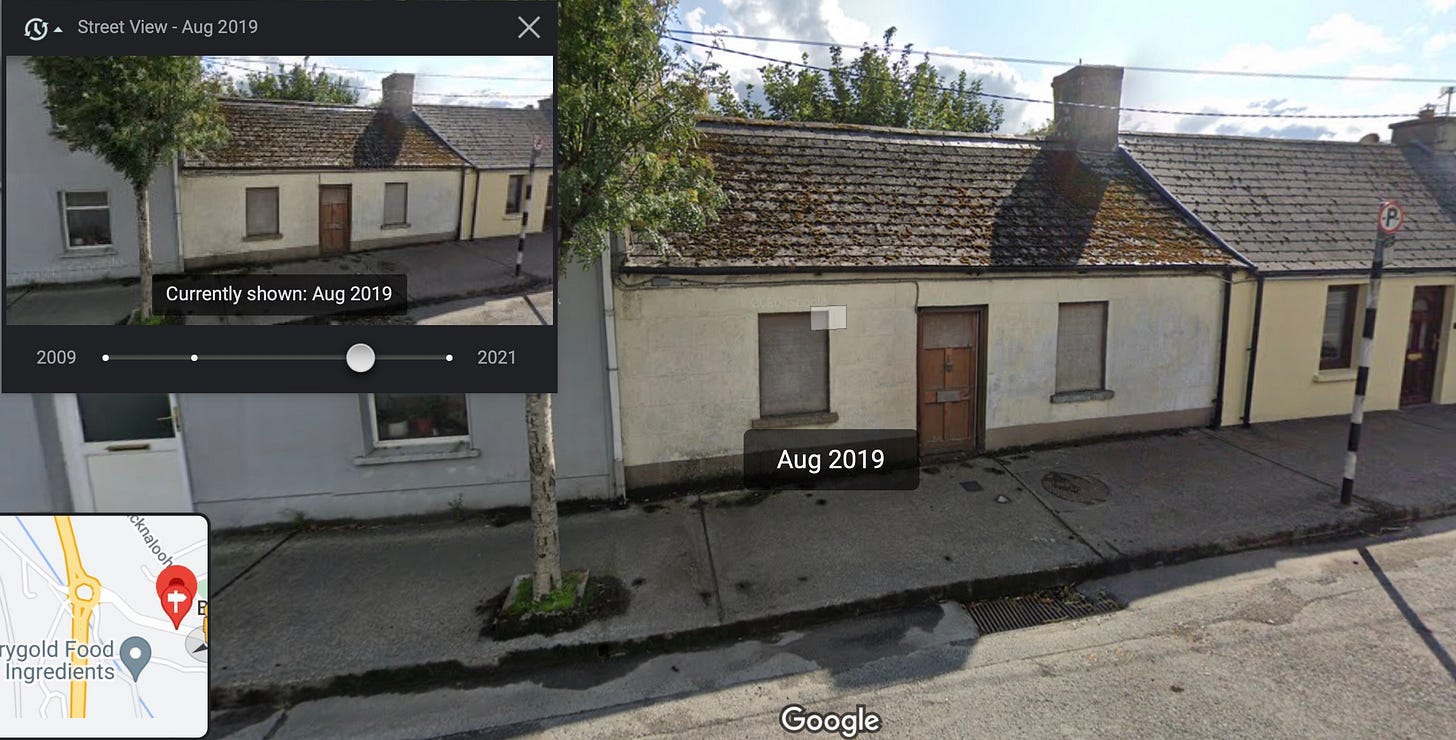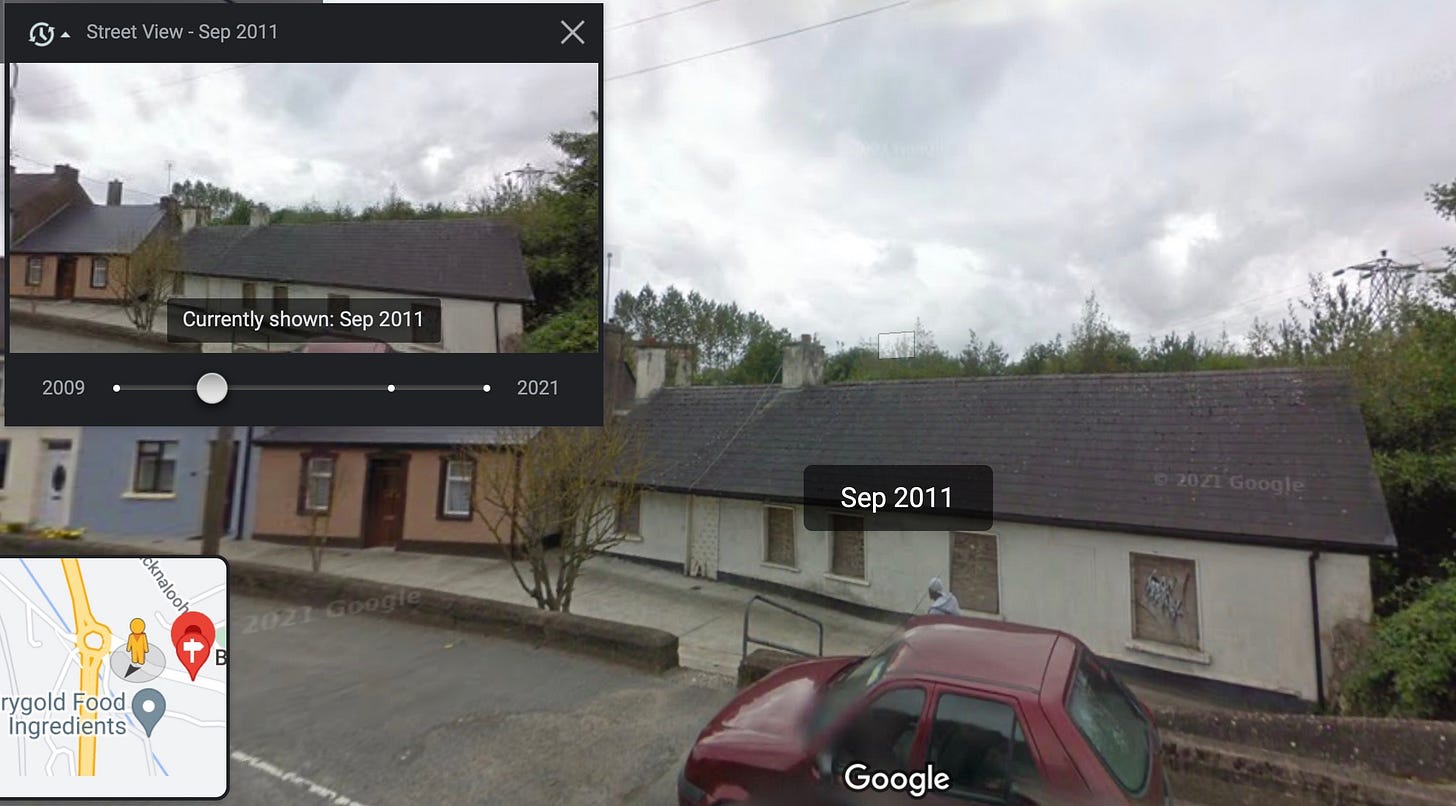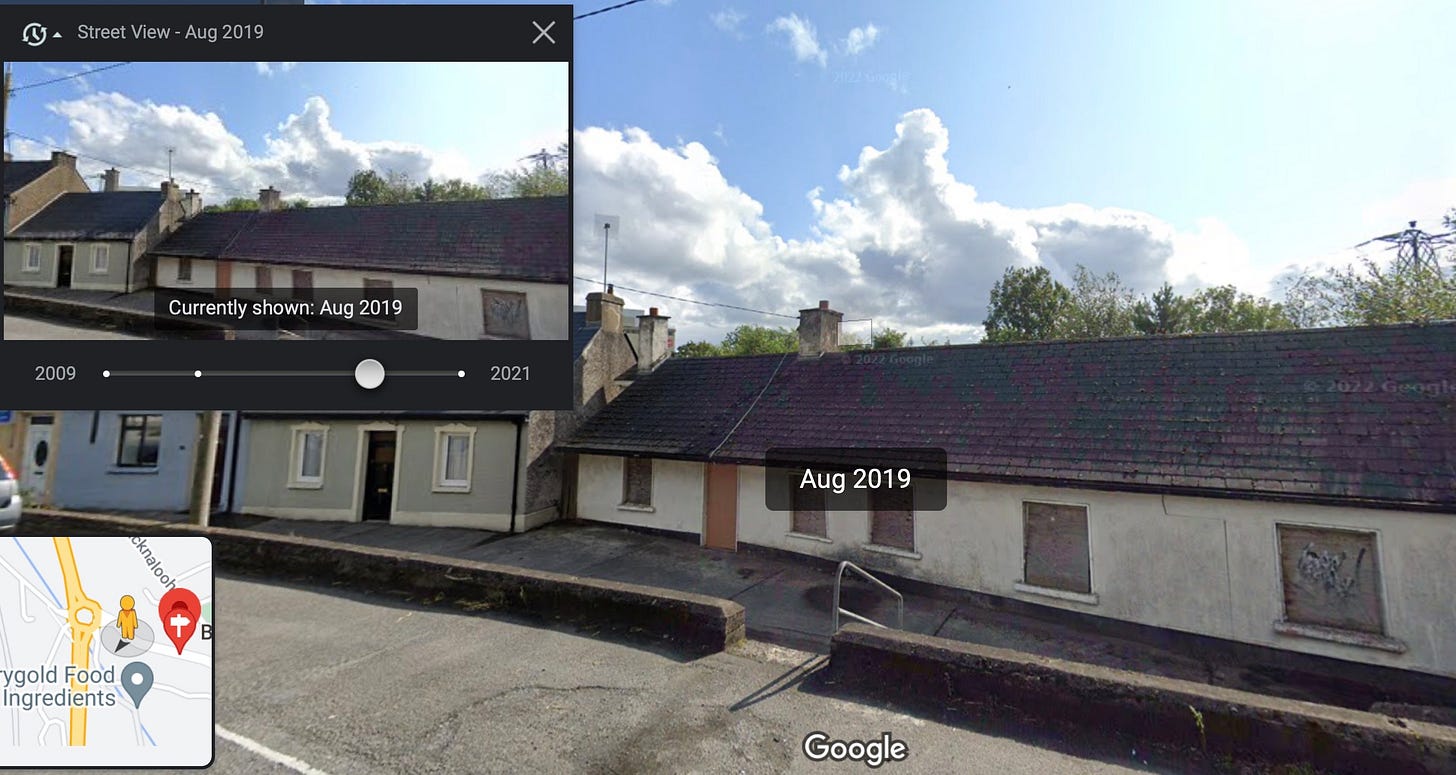Cork County Council says it doesn't know who boarded up the Mallow house in which a body lay for 20 years
The house on Beecher Street, where the discovery of Mr Tim O'Sullivan's remains was made, was boarded up some time between 2011 and 2019.
Questions have emerged over who boarded up the house in Mallow in which the remains of Mr Tim O’Sullivan were found earlier this month as Cork County Council say they have no record of having boarded up the property.
It’s believed that Mr O’Sullivan’s remains lay undisturbed in the house for 20 years, as widely reported by newspapers last week.
But the local authority told Tripe + Drisheen that it had “no information” on the boarding up of the property, which occurred at an undisclosed date between September 2011 and August 2019.
“Cork County Council has reviewed this matter,” a press officer told Tripe + Drisheen by email.
“The review does not indicate any involvement by Cork County Council in the boarding up of this property.”
Google street views of number 9 Beecher Street show it was not boarded up until some time after September 2011, but before August 2019:
Another derelict house at the end of the same street, number 31 Beecher Street, also has plywood hoardings on the windows, and the door of this second property was repaired or replaced within the same time frame that Mr O’Sullivan’s house was first boarded up. A small tree outside this second house can also be seen to have been removed:
Mr O’Sullivan’s family, who are from Kerry, told Radio Kerry that they had visited the house on several occasions but could not access it, and that the authorities told them Mr O’Sullivan had almost certainly returned to live in the UK, where he had worked prior to his move to Mallow.
It’s unclear if this means the Gardaí or the local authority.
Local shock over the tragic incident and questions over how his remains were undiscovered for so long have led to calls for a “trigger system” to deal with instances where someone stops paying utility bills, engaging with services or collecting social welfare payments.
Council workers finally entered the property this month. The workers who discovered Mr O’Sullivan’s remains are being offered support.
Attempts to CPO the property
Last year, the local authority began the process of using a Compulsory Purchase Order (CPO) to acquire the long-derelict house.
“Cork County Council has initiated the Compulsory Purchase Order (CPO) process and in 2022 took the initial steps of serving statutory notices on the property under the Derelict Sites Act, where details were included on the derelict sites register,” the council’s press officer told Tripe + Drisheen.
“The CPO has not progressed beyond this initial stage.”
“The council attempted to identify the property owner by way of title registration searches and most recently by way of affixing an ‘appeal notice’ on the property. These efforts proved unsuccessful in identifying the owner as the property is unregistered.”
Concerns it’s not an isolated incident
Cork city dereliction campaigner Frank O’Connor has warned that the discovery of Mr O’Sullivan’s remains may not be an isolated incident and that there may be further tragedies behind the locked doors of Cork’s derelict properties.
“You’d hope it’s a one-off,” he said, speaking on RTÉ’s Primetime last week, “It’s very upsetting to hear about this case. But we don’t know. We’ve heard stories of properties being boarded up for 60 years, in Cork city alone. Right across the country, you’ve got all these boarded up properties; they’re a waste, but it’s also concerning, what stories they might reveal if the boarding was removed.”


2,312 County Cork properties, or 1% of its housing stock, have been vacant for over 11 years, according to CSO data from censuses 2022, 2016 and 2011.
There are 1,373 abandoned farmhouses in the county.
The Derelict Sites Act 1990 outlines how local authorities should deal with derelict properties to bring them back into use. This includes a process of trying to contact the owners before placing the property on a Derelict Sites Register, after which there is an annual levy charged on the site. Eventually the council can apply to An Bord Pleanála to acquire the property through CPO.
However, while many local authorities now operate online, publicly accessible Derelict Sites Registers, Cork County Council does not: their derelict sites registers are physically located in Municipal District offices.
Tripe + Drisheen asked Cork County Council for a viewable version of their derelict sites register last Wednesday and are yet to receive it.

